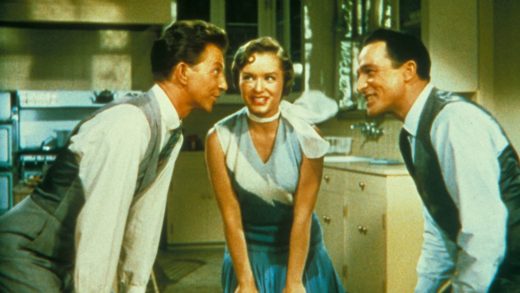When Jack Dorsey stepped down as CEO of Twitter in November 2021, the company seemed vaguely at peace for the first time in its tumultuous 15-year history. True, the stock wasn’t lighting any fires, but the company had navigated its way through the Trump storm with a world-changing ban. Trolls and bots were still a problem, but the numbers were trending downwards. Facebook was an irredeemable trash fire of misinformation — but a better Twitter, where we could finally, really hear each other think, seemed possible.
No one could have predicted that the house Jack built would fall in less than five months. But fallen it has — to a new owner who posted (and deleted) a Hitler meme, who got COVID all wrong online, who calls himself a “free speech absolutist” despite censoring employees and retaliating against critics, and whose latest in a long line of sexist gags and terrible tweets was a (now-deleted) suggestion that the company be renamed “Titter.”
That new owner, of course, is none other than Elon Musk. The Tesla and SpaceX owner has held, or claimed to have held, some strong and wacky opinions on and about the information platform that is about to become his sole property (barring any regulatory hurdles). A recent account of his Tesla life presented him as an entitled control freak, but also one that was distracted by multiple concerns in his ever-widening portfolio.
Musk has a history of buying or starting companies, then restlessly moving on to the next big thing. What happens next at Twitter is anyone’s guess, but the answer depends on how Musk answers some crucial questions before he loses interest.
It’s official: Elon Musk buys Twitter
Before we get to the questions, though, let’s make one thing clear: This is no ordinary media buyout. It’s a big deal. Some jaded Twitter users dismissed the world’s richest human’s $44 billion purchase of Twitter on Monday by comparing it to second richest human Jeff Bezos’ $250 million purchase of the Washington Post in 2013. The Post has around 1,000 journalists and a million readers. Twitter has over 200 million active daily users, all of whom can double as content creators.
Twitter is no ordinary medium. It sits at the center of events, with a reverse chronology that makes it the most immediate platform ever built. Its wittiest and most controversial content gets distributed, in screenshot form, all over its larger elder brother Facebook. When Twitter thinks something is news, the media tends to agree. It has a particularly symbiotic relationship with TV, where presenters love to read out tweets (mean or otherwise).
And it has a vast network of communities in every human field you can imagine, lovingly crafted and stitched together over years of fascinating threads. Which leads us to the first of three crucial questions:
Does Musk really care about Twitter’s current users?
In Twitter’s statement announcing the takeover, Musk was as measured as his last few weeks of tweets have been bizarre. He described Twitter in reverential terms: “Twitter is the digital town square where matters vital to the future of humanity are debated,” he said. “Twitter has tremendous potential — I look forward to working with the company and the community of users to unlock it.”
And who among that community could argue with the list of features he suggested: defeating the spam bots, authenticating humans, making the algorithm open source? “Maximally trusted and broadly inclusive,” which Musk gave as his goal for the service, could not have been crafted better to appeal to all kinds of users.
The trouble may come, however, with Musk’s naivety about free speech. The new owner seems oblivious to the problem of hate speech and the paradox of tolerance, let alone the way mobs can swarm on Twitter and conduct targeted harassment. Musk can blithely tweet all he wants about hoping his “worst critics remain on Twitter”; let’s see what he does if those worst critics get doxxed by Elon stans.
Tweet may have been deleted
Human rights groups are already raising concerns over Musk’s ownership. “The last thing we need is a Twitter that willfully turns a blind eye to violent and abusive speech against users, particularly those most disproportionately impacted, including women, non-binary persons, and others,” Michael Kleinman, a director at Amnesty International, told Reuters.
If Twitter does slink back towards the cesspool of hate under Musk, however, that may have a chilling effect on the 217 million daily users who like it fine just now. Maybe Musk is betting on the notion that he can somehow win back enough users who left Twitter (often because of unspecified cancellation) to make up for any who would leave.
If Twitter does slink back towards the cesspool of hate under Musk, however, that may have a chilling effect on the 217 million daily users who like it fine just now.
Turn Twitter into a Wild West, anything-goes-if-it’s-legal environment with no content moderation, however, and I would not bet on those creative, knowledge-rich, carefully-threaded communities sticking around for long. Musk may find that “maximally trusted” does not play well with “broadly inclusive,” not if the latter include the worst kinds of troll.
What kind of business does Musk want to run?
Credit where it’s due: By taking Twitter private, Musk has won the service some breathing room from the market’s constant demand for profit. “Taking it back from Wall Street is the first correct step,” Jack Dorsey wrote in a thread Monday evening. “It has been owned by Wall Street and the ad model.”
Tweet may have been deleted
Granted, Dorsey stands to benefit enormously from Musk’s offer — to the tune of $978 million. But he has a point. Twitter stands at a crossroads. In one direction, the same old business model of selling ads on the platform. On the other, a $3-a-month subscription service called Twitter Blue.
Can Musk’s showmanship sell enough of the latter to help Twitter quit relying on its $4.5 billion of annual ad revenue? It’s a tough call, especially since the buyout engineered by Musk and the dozen banks he signed up requires Twitter to take on so much debt that the interest payments alone will be $1 billion a year. That’s just a little under the amount that Twitter ad revenue grew by — $1.3 billion — in 2021.
Quitting ad revenue is going to be hard, especially when so many of the company’s 7,500 employees are dependent on it. Those employees were already wary of Musk’s style when he became Twitter’s largest shareholder earlier this month. They know they’re dealing with someone who has shown no sign he’s up to the task of running a media company.
So if Musk sweeps aside the company’s moderation systems, and advertisers fearful of content chaos head for the exits as a result, employee resentment will pile up like firewood. And one moderation question in particular could provide the spark.
Does Musk want to reinstate Trump?
Donald Trump claims he wouldn’t come back to Twitter even if invited. Longtime Trump watchers know how much this claim is worth. With his Truth Social tanking, and aides still printing out tweets for him to read, the former guy is more likely to be missing his old home online like crazy.
“We constantly evolve our policies,” Twitter CEO Parag Agrawal told employees at an internal meeting when asked whether Trump would be reinstated under Musk. “Once the deal closes, we don’t know what direction this company will go in.” (Indeed, Agrawal doesn’t even know if he’ll have a job under Musk.)
The drumbeat from the right, demanding Trump’s return, is going to sound ceaselessly in Musk’s ears. Those of us who dislike lies, demagoguery, and criminality will be pushing hard in the opposite direction. And Musk will be exactly where he wants: at the center of a major controversy, with all eyes on him.
Dragging out and constantly teasing the answer to the Trump question may be great entertainment for Elon Musk and likeminded trolls. The answer could profoundly affect the 2022 midterm elections, not to mention 2024. And if employee walkouts result, the house that Jack built could start to look very shaky indeed.











